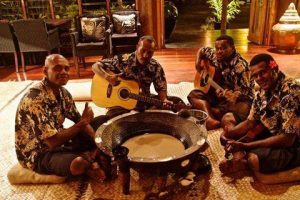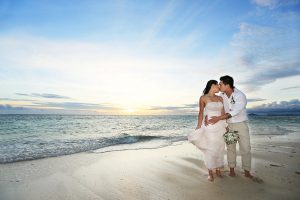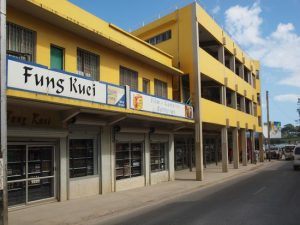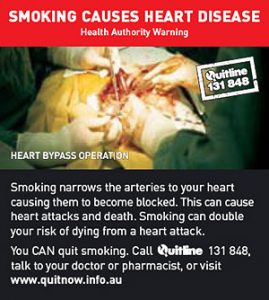Kava is a muddy little treasure, pleasure, experiment or tropical dare. It also called ‘yaqona’ in Fiji and ‘ava’ in Samoa. It is a legal opiate that comes from grating or grinding the root of the kava plant.
 There is a ceremony that goes with kava drinking in Fiji (hand-clapping before and after a shell) – just follow what the locals do. It should be swilled down in one motion, simply because it tastes pretty ordinary and sipping just drags things out. It is a great stress reliever and is useful in healing urinary tract infections and stomach ailments.
There is a ceremony that goes with kava drinking in Fiji (hand-clapping before and after a shell) – just follow what the locals do. It should be swilled down in one motion, simply because it tastes pretty ordinary and sipping just drags things out. It is a great stress reliever and is useful in healing urinary tract infections and stomach ailments.
How many shells should you have? Probably no more than three at first although some have a motto that kava is like martinis or breasts – one’s too few, three’s too many. Once your lips become numb, you will have had sufficient to be ‘mellow’. Another test is to get up and go for a short walk as kava can also affect the limbs. Vanuatu kava can be more potent than kava in other South Pacific countries.
It can also heighten the senses so some drinkers find bright lights and loud noises annoying. If you find that kava agrees with you, you can take some home with you and kava tablets are available in some pharmacies and health food stores. Kava drinking in resorts is considered a fun activity and no one minds if you decline but if you go to a village in Fiji and are invited to take kava (especially with the Chief) it is considered impolite not to – and, because kava is served in order of status – the Chief will drink first.
Photo: Namale Resort Fiji





